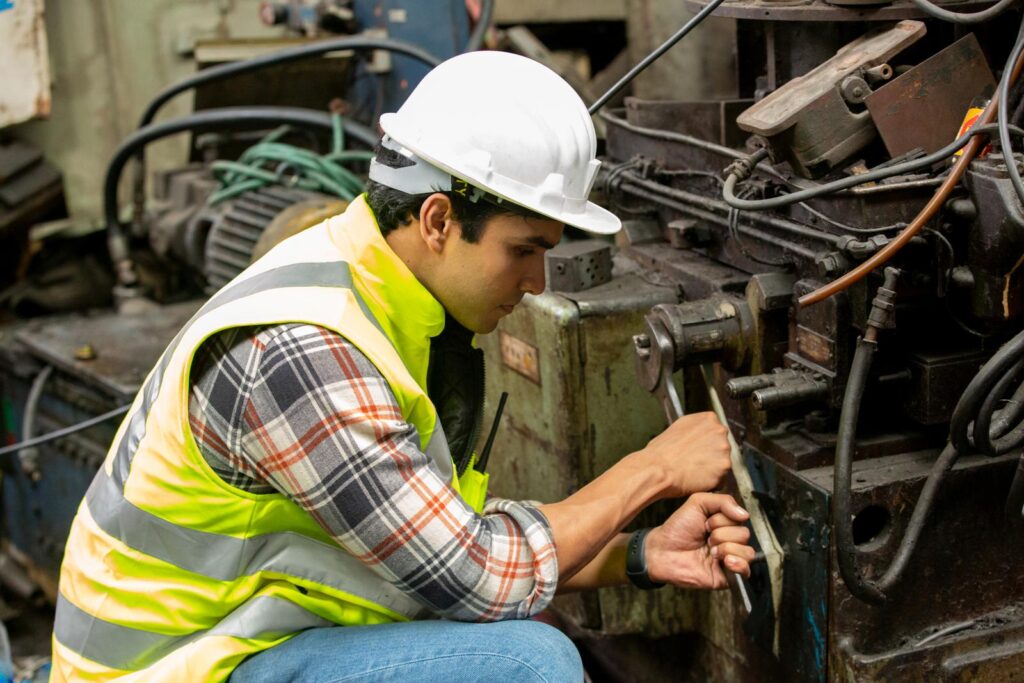Let’s talk about your dream project.
Schedule a free consultation now
That Require Careful Management to Operate at Peak Efficiency
Cement plants are typically large, complex facilities with multiple production lines. Each line has its own set of equipment and processes. To manage a cement plant effectively, you must be able to coordinate the activities of all the different production lines. You also need to have a good understanding of the raw materials used in cement production. The quality of the raw materials can have a significant impact on the quality of the final product. It’s also important to have a good understanding of the manufacturing process. This will allow you to optimise the process to improve efficiency and quality.
The Data Science team is responsible for analysing the data collected by the Manufacturing Engineering team and providing recommendations to improve the manufacturing process. They use statistical analysis and machine learning to develop models that predict how changes to the manufacturing process will impact the quality of the finished product.
The Quality Assurance team is responsible for ensuring that the products manufactured by the company meet the quality standards set by the customer. They perform inspections at various stages of the manufacturing process to ensure that the products meet the required quality standards. The Quality Assurance team also develops and implements quality control procedures to be followed by the company. They also train the employees on these procedures.
Enhancing Safety Protocols at the Facility: Safety protocols must be in place to ensure the safety of the workers and the environment in which they operate. Cement plants are highly regulated and must comply with federal and local regulations. In addition, many cement plants are located in areas prone to natural disasters such as earthquakes, hurricanes, and floods. This means that special safety protocols must be in place to protect workers and the environment from potential disasters.
One way to enhance safety protocols is to employ more comprehensive monitoring systems. These systems can detect changes in temperature, pressure, or other environmental variables that can indicate a potential safety hazard. They can also detect any changes in equipment performance that could lead to an unsafe conditions. Additionally, these systems can be used to detect any abnormal activities that may be indicative of a potential hazard.
Another way to enhance safety protocols is through training and education. All workers should know potential risks and how to handle them properly. This includes understanding the proper safety procedures for operating cement plants and responding to emergencies.
Safety protocols should also include regular maintenance and inspections of all equipment. Regular inspections and maintenance can help to identify any potential issues before they become a serious problem. This will help ensure that the cement plant runs efficiently and safely. Overall, enhancing safety protocols at cement plants is essential for ensuring the safety of workers and the environment. Regular monitoring, training, and maintenance are all essential for keeping a cement plant safe.
Sources:
http://www.ehsjournal.com/safety-cement-plant-key-issues/
https://www.birla-white.com/pdf/health-and-safety-in-cement-plants.pdf
Analysing Data for Continuous Improvement: Cement plants are complex, highly-engineered systems that require careful management to operate at peak efficiency. To ensure this, cement plants must rely on the latest sensors and analyser systems to meet their requirements. Data management is a critical component for continuous improvement in cement plants. To achieve this, managers must utilise data-driven discovery methods and machine learning techniques to gain insights from the data collected. This includes leveraging technology such as wearables to monitor process performance and identify areas for improvement.
Doing so can help cement plants optimise operations and maintain their competitive edge. Additionally, facility-wide environmental management approaches can enhance efficiency further and reduce costs. By applying these strategies, cement plants can ensure they are running at their best and remain competitive.
About the Author: Dr. Pratima Bajpai is a professor at the Indian Institute of Technology and Kharagpur in Kolkata, India. Her research interests include environmental science and engineering, sustainable development, and decarbonisation. She has authored more than 240 scientific articles and 23 books in her field.
Utilising Automation for Improved Efficiency: Cement plants are complex systems that require careful management to operate at peak efficiency. Automation technology plays a larger role in cement production and can help improve efficiency while reducing costs. Automation can monitor and control all aspects of the cement production process, from raw material procurement to production and distribution. Automation also enables accurate monitoring of process parameters, allowing for adjustments to be made quickly and efficiently. Plant managers can quickly adapt production schedules to meet customer demands with automated systems.
Automated systems can also help plant managers reduce energy consumption by identifying inefficient energy use. This allows for the quick implementation of processes and technologies that reduce energy use. Automation also helps improve cement plants’ safety by monitoring operations and alerting staff to potential safety issues. Automating certain processes can also reduce labour costs by reducing the need for manual labour. Overall, automation technology is increasingly important in cement plant operations, allowing for improved efficiency and cost savings.

Air slides are an ingenious technology that is crucial in many industries. They are used to convey bulk materials, such as powders and granular substances, in a
Learn more
In every industry, maintaining operational efficiency and extending the life span of equipment are critical considerations. With its complex machinery and demanding
Learn more
Filter bags play a crucial role in various industries by ensuring efficient air filtration and dust collection. However, when faced with extreme dust challenges,
Learn more